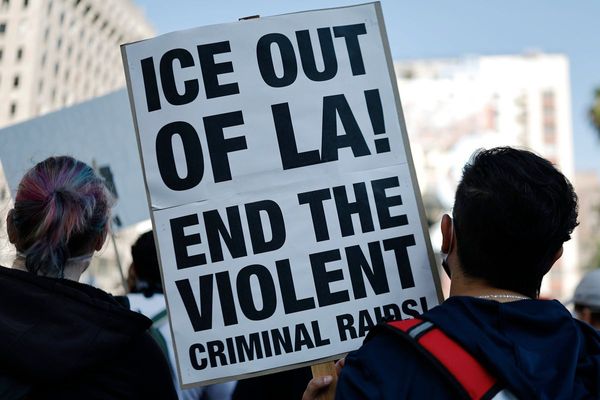
Have you ever wondered what would happen to your money if you died without leaving behind a password list? In today’s digital world, almost every financial account—banking, investments, even insurance—requires a password. Yet, most people don’t think twice about what happens to those accounts if they’re suddenly gone. Without a password list, your loved ones could face a frustrating, expensive, and sometimes impossible journey to access your money. This isn’t just about convenience; it’s about protecting your legacy and making sure your hard-earned assets don’t disappear into the digital void. Let’s break down exactly what’s at stake and how you can avoid leaving your family in the dark.
1. Your Money Could Become Inaccessible
When you die without a password list, your family may not be able to access your online bank accounts, investment portfolios, or even digital wallets. Most financial institutions require secure logins, and without the right credentials, your loved ones could be locked out indefinitely. Even with a death certificate and proof of relationship, the process to recover or transfer funds can be slow and complicated. In some cases, the money may remain untouched for years, eventually being turned over to the state as unclaimed property. This is a common issue, with billions of dollars sitting in unclaimed accounts across the U.S.
2. Estate Settlement Gets Delayed
Settling an estate is already a complex process, but without a password list, it becomes even more challenging. Executors and heirs need access to your accounts to pay bills, close subscriptions, and distribute assets. If they can’t log in, they may have to go through lengthy legal procedures, such as court orders or affidavits, to prove their right to access your accounts. This can delay the entire estate settlement process by months or even years, causing unnecessary stress and financial strain for your loved ones.
3. Digital Assets May Be Lost Forever
Your digital assets—cryptocurrency, PayPal balances, online savings, and even loyalty points—are often protected by unique passwords and two-factor authentication. Without a password list, these assets can be nearly impossible to recover. Unlike traditional bank accounts, many digital platforms have strict privacy policies and may not release funds to anyone, even with proof of death. In the case of cryptocurrency, if no one knows your private keys or recovery phrases, your digital wealth could be lost forever, with no way to retrieve it.
4. Subscriptions and Bills Keep Running
If your family can’t access your online accounts, automatic payments for subscriptions, utilities, or other recurring bills may continue unchecked. This can drain your accounts and create confusion as charges pile up. Without a password list, it’s difficult for your loved ones to identify and cancel these services. They may only discover the problem when statements arrive in the mail or when accounts are eventually overdrawn.
5. Identity Theft Risks Increase
When accounts are left unattended after someone dies, they become prime targets for hackers and identity thieves. Without a password list, your family may struggle to monitor or secure your digital presence. Cybercriminals can exploit inactive accounts, change passwords, or even open new lines of credit in your name. This can create a financial mess for your estate and add another layer of stress for your heirs.
6. Social Media and Email Accounts Remain Open
Your social media and email accounts hold personal memories, important contacts, and sometimes even financial information. Without a password list, your family may not be able to close or memorialize these accounts. This can lead to emotional distress, as loved ones continue to receive reminders or notifications from your digital life. In some cases, these accounts could be hacked or misused, further complicating matters.
7. Legal Costs Can Skyrocket
Trying to access accounts without a password list often means hiring lawyers, filing court petitions, and paying for notary services. These legal costs can add up quickly, eating into your estate and reducing the inheritance your loved ones receive. In some cases, the cost of recovering digital assets may outweigh the value of the assets themselves.
8. Your Wishes May Not Be Honored
Without access to your accounts, your family may not be aware of your final wishes regarding your money or digital assets. Important documents, such as wills or insurance policies, may be stored online behind password-protected accounts. If your loved ones can’t access these files, your intentions could be overlooked, and your assets may not be distributed as you intended.
Protecting Your Legacy Starts with a Password List
The reality is simple: dying without a password list can leave your money, digital assets, and personal wishes out of reach. Creating and maintaining a secure password list is one of the most practical steps you can take to protect your legacy. Store your password list in a safe location, such as a password manager or a sealed document with your estate plan and ensure that a trusted person knows how to access it. By taking this step, you provide your loved ones with the necessary tools to manage your affairs smoothly and honor your wishes.
Have you considered what would happen to your accounts if you were to die without a password list? Share your thoughts or experiences in the comments below.
Read More
Find the Right Amount of Life Insurance in 10 Minutes
What’s the Right Type of Life Insurance?
The post What Happens to Your Money If You Die Without a Password List appeared first on The Free Financial Advisor.







